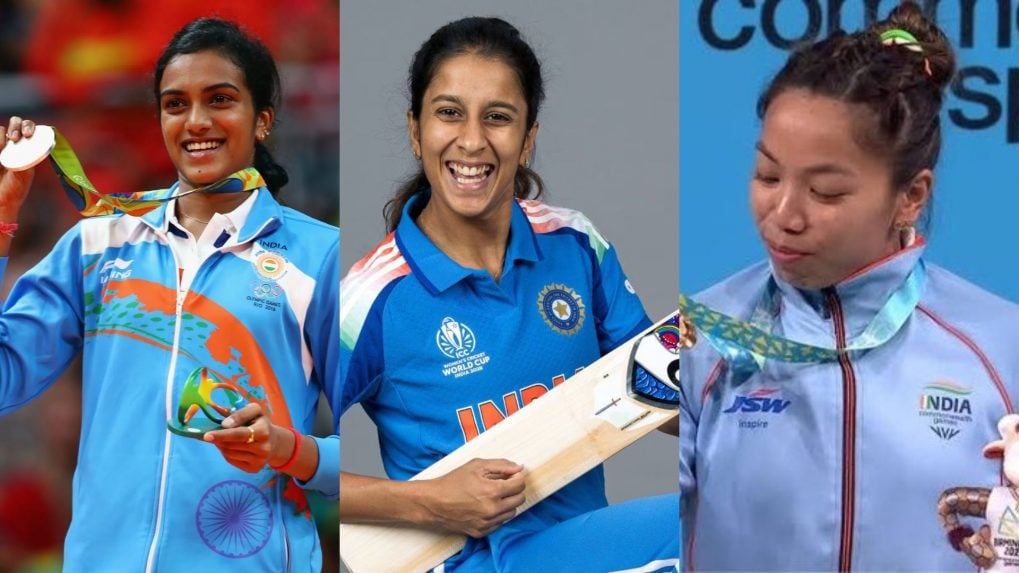How it Works
WPP, Havas, Omnicom: Are advertising’s biggest holdcos recasting agencies as AI Operating Systems?

They win. They break records. They fill stadiums. Yet the women who change the game still struggle to find space in the story of sport.
Brands applaud them, but mostly from a distance. Campaigns appear around tournaments and fade with the season. The applause is brief. The attention implicitly conditional.
When it is said it’s a man’s world, it’s not about performance. It is about narrative power. Men play inside a mythology that advertising has built, globally, for a hundred years. It’s about rivalry, revenge, redemption. The hero’s journey already written till his triumph. A single image of a bruised cricketer or a victorious striker can carry a campaign because the story feels complete.
Women athletes do not own that shorthand. Their victories are framed as causes, not continuities.
They are asked to inspire before they are allowed to compete.
Their excellence is translated into advocacy.
The industry wraps performance in moral purpose and calls it empowerment.
Even brands that claim to stand for women repeat the same pattern. They use female athletes as symbols, not subjects. The message remains about virtue, not value. A woman becomes evidence of progress, not the protagonist of aspiration. She performs, but someone else tells the story.
Advertising thrives on archetypes. The rebel. The Ruler. The Jester. Yet women athletes live beyond those frames. They are fierce and thoughtful, competitive and kind. Complexity unsettles a trade that prefers clarity. Simple stories are easier to sell. So the nuance is edited out. Easy to tell, easy to sell.
Money follows belief. Men’s sport is treated as business. Women’s sport is treated as benevolence. The budgets prove the bias. When a men’s team fails, a brand reinvents the myth. When a women’s team wins, a brand calls it social change. One is investment. The other’s inherent attitude is charity.
Bollywood, oddly enough, has done more for women athletes than mainstream advertising.
Films like Chak De India, Mary Kom, Dangal and Panga gave female sport its emotional grammar.
They created the language of grit, sisterhood and redemption that advertising never found.
They made the athlete a character, not a campaign. Cinema built myth where marketing hesitated. While brands waited for proof of popularity, films created faith.
Inside agencies and boardrooms, the bias hides in tone. Campaigns about strong women are often written, directed and approved by men. The results feel polished but hollow. It is not that the industry dismisses women. It is that it still denies them authorship.
Meanwhile, the audience has changed. Young fans do not care whether the game is male or female. They care about story, skill and spirit. They cheer for excellence, not gender. The culture has moved ahead. Commerce lags behind.
A few brands have begun to shift the frame. They show women athletes without sermons or slogans. They treat success as normal, not symbolic. They focus on craft, not charity. That is how equality sounds when it stops declaring itself.
The real task is not to glorify struggle. It is to normalise excellence. When a woman’s victory is no longer called historic, progress will have arrived. When her presence feels ordinary, equality will feel real.
Marketing prides itself on prediction. Yet in women’s sport it has only reacted. It waits for triumph before it tells the tale. By the time brands join the movement, the athletes have already built their own audiences. They no longer need intermediaries to translate their worth.
If advertising is about meaning, it must see where meaning now lives. Sport is changing from spectacle to solidarity. Can advertisers build stories where women’s ambition feels natural and power carries no apology ? Can they stop borrowing heroism from the template for men ?
True equality will arrive when a woman athlete stands at the centre of a campaign and no one calls it brave. It will come when brands stop advertising women and start advertising with them.
Shubhranshu Singh is a business leader, cultural strategist and columnist. He was named as one of the 50 most influential global CMOs for 2025 by Forbes. He serves as the APAC representative on the EffieLIONS foundation board.
From purpose-driven work and narrative-rich brand films to AI-enabled ideas and creator-led collaborations, the awards reflect the full spectrum of modern creativity.
Read MoreThe Storyboard18 Awards for Creativity have unveiled a Grand Jury comprising some of India’s most influential leaders across advertising, business, policy and culture, positioning it among the country’s most prestigious creative award platforms.